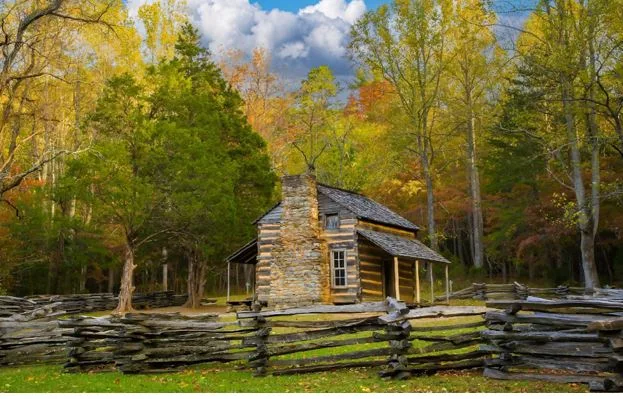What You Should Know Before Buying a Vacation Home
Have you ever come back from a weekend trip and thought, “We should just buy a place here”? It usually happens somewhere between the second cup of coffee on a cabin deck and the panic of calculating how much you’ve spent on your trip already. The idea sounds simple enough: own a home where you love to relax. In this blog, we will share what you should know before buying a vacation home.
Vacation Buying Is Booming, but So Are the Risks
The appeal of owning a second home isn’t new, but the volume of people chasing that dream certainly is. Remote work, rising travel costs, and the short-term rental boom have shifted the way people think about vacation homes. No longer a luxury reserved for the wealthy, second properties have started looking more like investment tools—or backup plans for folks priced out of the full-time housing market.
What’s happening now is that vacation home demand has reached small towns and mountain markets that weren’t always on the radar. Places like the Smoky Mountains have seen a sharp uptick in interest, not just because of their scenery but because of their price points. In many cases, investors and casual buyers are circling the same listings. Some want a place to get away. Others want a property that pays for itself through rental income.
The line between personal retreat and business asset has blurred. And that makes the buying process a little more complicated than it used to be.
There’s also a growing market for affordable mountain cabins for sale, particularly in areas where short-term rental demand remains strong and inventory hasn’t been totally swallowed by corporate buyers. Firms like Local Realty Group, which launched in 2020, have helped regular people—not just deep-pocketed developers—buy cabins in the Smoky Mountains and other scenic regions with high rental potential. The interesting part isn’t just the access to properties. It’s the strategy behind it. The firm’s focus on supporting everyday investors through these purchases has shifted the game. They don’t just show listings. They help buyers see where the value really lives—whether it’s resale potential, location patterns, or occupancy forecasts.
If your vision of owning a vacation home is tied to the idea of peace and quiet, that’s still possible. But in many markets, you’ll need to understand how the property fits into larger trends. Because whether you rent it out or not, you’ll still be competing with buyers who absolutely will.
You Need a Real Budget—Not an Optimistic One
Second homes come with first-rate expenses. That sounds obvious, yet plenty of people budget for the mortgage and overlook the rest. Maintenance, insurance, taxes, utilities, travel, cleaning, unexpected repairs—these costs don’t vanish when you’re not using the place. They pile up quietly until they aren’t quiet anymore.
If you’re renting it out, you’ll also need to account for property management fees or, if managing it yourself, the cost in time. Running a vacation rental isn’t passive income. It’s customer service, marketing, and home upkeep rolled into one. Even in hot rental markets, profit margins aren’t always what they appear on paper.
Lenders also see second homes differently. Financing isn’t as friendly. You’ll likely need a larger down payment and a stronger credit score. Interest rates for vacation homes can be higher, and terms vary depending on whether the home will be used primarily for personal or rental purposes. You’ll want a lender who understands the short-term rental market, especially in locations with tourism-driven economies.
Run every number with margin for error. If your budget works when everything goes right, it’s not ready yet. Real budgeting makes room for rainy months, unexpected repairs, and slower rental seasons.
Location Can Make or Break the Entire Plan
Picking a vacation home isn’t just about personal taste. The location dictates how often you’ll use it, how easy it’ll be to maintain, and how much it will appreciate—or depreciate—over time. And if you’re planning to rent it out, location does even more than that. It drives visibility, occupancy rates, and seasonal pricing.
Tourist-friendly towns usually have solid demand, but they can come with tighter regulations. Some cities and counties have started limiting or restricting short-term rentals through zoning laws and permit caps. Before you fall for a cabin or condo, you’ll want to know what rules already exist—and what rules might be coming.
Then there’s accessibility. Is the home within driving distance? Does it require navigating icy backroads in winter? Are there grocery stores, repair services, or medical clinics nearby? It might feel charming to be far from everything—until the water heater breaks the week after Christmas.
Properties that are easy to access, have good infrastructure, and fall within regulated but not overly restricted rental zones tend to hold their value better over time. You’re not just buying a view. You’re buying into a place. And that place has to work whether you’re there or not.
Exit Strategy Matters—Even at the Beginning
When you buy a primary home, the exit strategy is often vague. You’ll live there, build equity, and maybe move in a decade. But with vacation homes, the timelines shift. You might rent it for a few years, sell it during a market peak, or pass it on as a family asset. No matter what your goal, you should know how and when you might exit before you ever close the deal.
Is the local market trending upward, or is it already saturated? Are buyers still coming in, or is inventory starting to stall? Are taxes rising faster than rental income? These are questions with real answers. You don’t have to guess. Local real estate agents who understand both investment and owner-occupied trends can help you gauge the market’s future, not just its present.
Even if you never plan to sell, life changes fast. The better your exit options, the more flexible your investment becomes. That’s not paranoia—it’s just smart planning.
Buying a vacation home can be a smart move, a dream come true, or a financial mess. Sometimes it’s all three. The difference lies in how much thought you give it before the offer goes in. With the right questions, the right professionals, and a grounded look at what ownership actually means, you can turn a weekend idea into something that lasts longer than the sunset glow.
Owning a second home isn’t just about location or income. It’s about balance—between your head and your heart, between the spreadsheets and the starry nights. And when those pieces come together, it can really be worth it.





